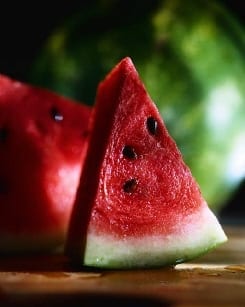Ever wonder how your favorite A-list celebrities maintain their million-dollar bodies? Or snap back into silver screen shape so quickly post-pregnancy? Here are some of Hollywood’s favorite health strategies that really work and a few that you should avoid.
1. Invest in Sweat Equity: Many celebs like Pilates, yoga and running to get fit, flexible and firm. To lose fat fast though, your choice of physical activity needs to be sustained at a level of intensity that’s appropriate for you. Long leisurely walks around the block or on the beach are great for de-stressing and innervating muscles, but won’t knock off 10 to 20 pounds anytime soon. To boost fat burning, you have to raise your heart rate for at least 20 to 30 minutes daily where you’re exercising at your ‘training heart rate’. To determine this level of intensity, have a certified fitness trainer calculate your rate for you.

2. Fuel Up on Fiber: Fiber- and nutrient-rich foods, such as fruits and vegetables, provide an abundant supply of vitamins, minerals and antioxidants. Eating fruits and veggies are a natural way to flush out your system.
Before a high-profile event, celebrities nibble on foods with a high-water content, such as:
- Lettuce
- Watermelon
- Melons
- Celery
- Cucumbers
- Oranges
They also avoid gas-producing foods that can result in bloating and gas, such as broccoli, cauliflower, cabbage, Brussels sprouts in addition to onions, beans, apples, and prunes.
3. Choose Raw AND Cooked: The raw food culture stands by their belief that cooking destroys valuable enzymes in food. The raw regimen can result in weight loss as high-calorie cooked foods, such as cookies, pizzas and pastries are shunned, and low-calorie raw fruits and vegetables are consumed. However, heat breaks down the thick cell walls of plants which release some of the nutrients that are bound to their surfaces. Cooking increases the bioavailability of antioxidants and cancer-fighting compounds, such as lycopene, vitamin A, and indole, that would otherwise be unavailable or limited if only eaten raw.
 4. Eat Breakfast: Research shows that starting your day with something to eat is the key to long-term weight loss. After running quietly and idly in fasting mode all night, your body needs energy (calories) to jump start your metabolism. Most of all, you’ll keep food choices and portions under control by preventing the ravenous bouts of hunger later in the day.
4. Eat Breakfast: Research shows that starting your day with something to eat is the key to long-term weight loss. After running quietly and idly in fasting mode all night, your body needs energy (calories) to jump start your metabolism. Most of all, you’ll keep food choices and portions under control by preventing the ravenous bouts of hunger later in the day.
Good breakfast options for busy on-the-go schedules include fresh fruit and fiber-filled steel oats or whole grain toast and a protein-rich hard-boiled egg.
 5. Ban White Foods: Favor whole grains, like whole wheat, brown rice, oats, and barley over refined “white” carbohydrates, such as white flour, white rice, white potatoes, white sugar, and refined cereals. These foods are generally high in calories, sugar and fat.
5. Ban White Foods: Favor whole grains, like whole wheat, brown rice, oats, and barley over refined “white” carbohydrates, such as white flour, white rice, white potatoes, white sugar, and refined cereals. These foods are generally high in calories, sugar and fat.
By banning white, processed carbs from your diet, you’ll ditch the high-calorie cookies, crackers and chips for nutrient-dense complex carbs. But still be conscious of portion sizes. Whole grains contain lots of healthy fiber and vitamins, but aren’t void of calories.
6. Graze: Eat small portions of food throughout the day. Snack! Try to eat every three to four hours. Plan ahead and stock a cooler with ready-to-eat snacks for toting around wherever you go. Doing so will keep you from grabbing the first thing you see and will keep your blood sugar stable. A carb snack for energy combined with some protein will keep you satiated longer.
Good choices include low-fat string cheese and fresh apple slices dipped in lemon water (1 Tbsp. lemon juice mixed with 1 cup water) to keep them from turning brown; a handful of grape tomatoes, carrot sticks and hummus dip; or some brown rice sushi.
 7. Don’t Take ADD Meds: Reportedly, some Hollywood actresses are taking Adderall, a drug used for treating attention-deficit disorder and narcolepsy (sudden uncontrollable drowsiness). Adderall, also known as dextroamphetamine or amphetamine, is a stimulant that increases the metabolism.
7. Don’t Take ADD Meds: Reportedly, some Hollywood actresses are taking Adderall, a drug used for treating attention-deficit disorder and narcolepsy (sudden uncontrollable drowsiness). Adderall, also known as dextroamphetamine or amphetamine, is a stimulant that increases the metabolism.
Some forty to fifty years ago, it was marketed as a diet pill. This drug is potentially dangerous if you’re not under the care of a physician. It can affect heart rate and blood pressure as well as cause psychological disorders and growth problems and should never be used for weight control.
8. Watch What You Drink: Drink a minimum of one liter of water a day. Your brain, body and skin need water to function and be at its best.
- Avoid soda as the carbonation (and artificial sweeteners) can lead to bloating. Hollywood starlets made their living off of their smile and carbonated drinks can cause tooth erosion from the acid and decay from the sugar.
- Choose plain water over fortified and/or flavored ones. They contain extra calories and increase the risk of vitamin toxicity if you’re already taking a supplement or eat fortified foods.
- Coconut water is a healthy option especially if you’re bloated. It’s naturally high in potassium which helps flush out excess sodium.
 9. Ramp Up the Heat: Add red pepper flakes, jalapenos, and hot pepper sauce to your meals. They make food more satisfying by adding another layer of flavor. Inevitably you’ll also eat more slowly if you’re cooling down your throat and wiping away your tears! Studies have found that people who ate fiery foods burned more calories and tend not to overeat.
9. Ramp Up the Heat: Add red pepper flakes, jalapenos, and hot pepper sauce to your meals. They make food more satisfying by adding another layer of flavor. Inevitably you’ll also eat more slowly if you’re cooling down your throat and wiping away your tears! Studies have found that people who ate fiery foods burned more calories and tend not to overeat.
10. Don’t “Cleanse”: Cleansing, i.e., sipping on not much more than water spiked with lemon juice for 10 days, is a drastic regimen and weight loss can be dramatic. Modified 1,000-calorie fasts add to this craze and involve consuming shakes and diuretic snack bars. But don’t be fooled (or foolish). Your body will no doubt drop pounds, but mostly in the form of water and muscle, NOT fat.
Moreover, the cleanse is counterproductive to weight loss in that your body responds to this starvation technique by slowing down your metabolism and breaking down muscle to survive. And without calories (fuel), you can’t sustain a fat-burning workout. The end result? Less muscle, more fat and water. Muscle not only gives your body a nice toned look, but is essential for your heart, brain and lungs to function.





